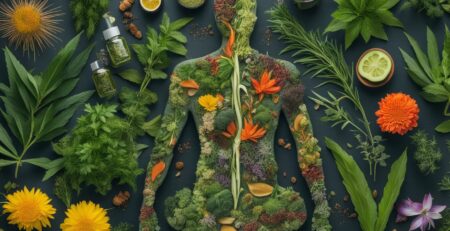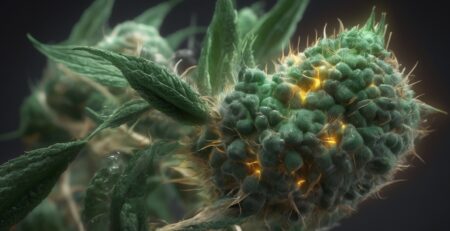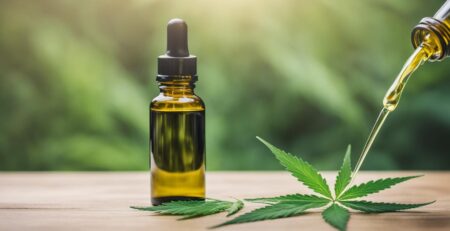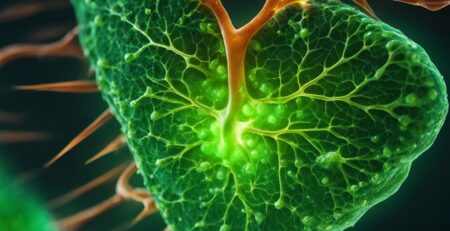Your Gut, Your Endocannabinoid System, Cannabis and Your Microbiome
Great talk by the amazing Dr. Ethan Russo, board-certified neurologist and psychopharmacology researcher, on the positive effects of cannabis on your microbiome.
Thank you it's an honor to be here especially to follow Rafi my mentor and surrogate uncle on this slide you'll see my email. I'd be happy to hear from you afterward part of this talk is contained in an article that was just published last week that I'd be happy to send to each of you so here I am on the high wire without a net trying to do an hour presentation in 15 minutes so let's begin. There are some disparate threads here I'll try to tie together and hope that it becomes coherent at the end.
The human gut harbors a hundred trillion microorganisms and there are 10 to the 12th per milliliter of these. Their genome exceeds that of the host humans a hundredfold. There's a difference in obese humans they have more of a type of bacteria called Bacteroides, lower Bacteroides and higher Firmicutes. This fellow Dr. Mohler did a very interesting study, they actually went and sampled in the field fecal samples from wild chimps, bonobos which are pygmy chimps, our closest genetic relatives, gorillas, and human populations.
The microbiomes of American humans are more different from those of Malawi humans than the gut microbiomes of Malawi humans are from bonobos. And you see the p-value there you never see values like this unless it is a clear finding. Looking at three different continents in humans they were lower microbial diversity than in Apes with respect to the bacterial phyla classes, orders, families, genera, there's a constriction of the diversity.
Americans average 30 fewer bacterial genera, the lowest level of diversity. These changes have been associated historically, epidemiologically with vast increases in gastrointestinal disorders obesity and especially autoimmune disorders. The same group did a subsequent study again showing that there are also anatomical differences. In Apes the colon is greater than 50 percent of the intestinal volume versus only 20 percent in humans. It's clear that several bacterial lineages have seemingly followed evolutionary wise with hominids over the last 15 million years. And again in industrial nations humans harbor the fewest genera of any primate. There are two Bacteroides ACI lineages in apes that have never been found in the American human subspecies, as I like to call it. That severity of irritable bowel symptoms is inversely related to the gut bacterial diversity, so this definitely has importance to disease.
So what is a person to do? Well, I'd suggest these things. First probiotics that may be familiar to some of you. These are oral supplements of beneficial gut bacteria that can be supplied as capsules or in fermented foods, especially kefir, lacto fermented vegetables, to replace the kind of thing that is missing. Then you need something that those bacteria like to eat and those are “prebiotics” [sic]. These are oral vegetative matter indigestible sugars and fiber, fructooligosaccharides (FOS) that serve as a feedstock for the beneficial gut bacteria.
Some other studies looking at the relationship between the microbiome and psychology. When people ingest Bifidobacterium and Lactobacillus probiotics it reduces negative mood, a treatment for depression. Probiotics, these special bacteria in elderly patients improved attention and working memory is compared to placebo and was statistically significant. There are some diseases, particularly Clostridium infections that are treated with fecal transplantation. When this was done in autistic children there were improvements in the behavioral and Gi signs and symptoms over the course of the ensuing eight weeks. Presumably, this is something that needed to be repeated.
Again the gut microbiota, these different bacteria, affect neuropsychiatric status on such conditions as autism, depression, stroke, and schizophrenia. The mechanism of action seems to be mediated through the autonomic nervous system, the enteric nervous system, the immune system, and relates to bacterial metabolites, and I'm going to suggest now that there's a role for the endocannabinoid system here.
Again we've seen marked changes in the human diet, as compared to past centuries. At the same time, we've had skyrocketing rates of chronic disease: specifically obesity, inflammatory bowel diseases, other autoimmune diseases, allergies, diabetes, cancer, depression, and neurodegenerative disorders. These were not “rare” in past centuries “merely because we're living longer”, It's demonstrable that they are more of “these” per the population.
Apparently, it's necessary to have multiple probiotic species, not single ones to protect against pathogenic bacteria like Clostridia and to gain these neuropsychiatric benefits.
Additionally, probiotics may help control p-part gamma, this is a nuclear receptor you're going to be hearing a lot more about, it regulates gene transcription. Recently was shown that cannabidiol and also THCA tetrahydrocannabinolic acid are agonists of this receptor. It's been called the master regulator of adipogenesis, the production of fat. Also regulating tumor necrosis factor-alpha which is important in autoimmune diseases and in inflammation. Prebiotics, this vegetative matter that the bacteria like changed the microbiota, to reduce fat production and stabilize the gut, so that it doesn't leak and allow toxic metabolites to enter the bloodstream. We also know that CB2 (the non-psychoactive cannabinoid receptor) levels correlate to concentrations of Lactobacillus, what's in yogurt, and negatively with Clostridia species that are often pathogenic.
A study that directly relates to the Endocannabinoid system is this one from 2007. Lactobacillus acidophilus common component of yogurt. A specific strain of that was administered and induced CNR2, that's the gene that produces the CB2 receptor, it's RNA expression above that of resting human HT-29 epithelial cells, and that was statistically significant. So they demonstrated that as well as an enhancement of morphine's pain-killing effects in rats, highly statistically significant. That reduction in pain was inhibited when a CB2 antagonist was administered, so that fits together.
A very interesting study from 2011 looked at obesity in cannabis users and non-cannabis users. What they found was obesity rates were only 14.3 % and 17.2% respectively among participants using cannabis at least three days a week, (A 1/3 reduction over non-users). Additionally, those who use cannabis had significantly better body mass indices. Do you know what yours is?
Another study directly relating cannabinoids to this issue was done in Calgary, published in 2015 by Nina Clooney and the group there. DIO mice have a genetic susceptibility to obesity, they gain weight on the same dietary intake that doesn't affect others. When administered THC that altered their microbiome balance affecting the Firmicutes and Bacteroidetes ratio. The THC essentially prevented a ratio increase or weight gain despite being on a high-fat diet. So this could help explain what we observe in humans, as we'll see from these demonstrations.
People who use cannabis suffer from a variety of stereotypes. The most common one is the cannabis user as a lazy slacker stoner as we see in the illustration but another one is this that of the skinny hippie and you see that he's got a grocery bag full of vegetables, hopefully, the right ones. But the truth is that the skinny hippie is the more accurate representation of what a cannabis user is likely to look like, as opposed to the slacker stoner.
Again how do we change the way things are and this destiny that our diet has seemed to impose upon us? Well in this prebiotic array you see some vegetative matter that may be quite unfamiliar to you starting with acacia fiber in the upper left, chicory roots sometimes use as a coffee substitute, Sunchokes, otherwise known as Jerusalem artichokes, then dandelion greens, burdock and then the more familiar LEACI your onions, leeks, and garlic. All of these feed the beneficial bacteria in the gut.
Additionally, another thing that's changed about our diets is our vegetables have become tasteless. In ancient times people ate what they could gather and it included a lot of bitter herbs and these are largely fallen out of the diet. Particularly Americans like things that are sweet and not bitter. This can be supplemented with herbal bitters as demonstrated in the photo, and it's been shown that these are present not only in the tongue but throughout the gut and specifically in the brain where they do such things as reduce hunger drive, the drive toward sugars and also seem to correlate with reducing such disorders as diabetes and even acne in the face. So the question is can bitter herbs allay hunger via the hypothalamic and ECS mediated mechanisms and lead to weight loss and counteract the metabolic syndrome and type 2 diabetes? I believe the answer is yes.
Here are a couple of books on how to eat. “Nourishing Traditions” by Sally Fallon which first came out in the 90s but still presents a very relevant diet. On the more recent bestseller by David Perlmutter called “Brain Maker” correlating the use of this kind of diet with prebiotics and probiotics to improvements in autism and a variety of other neurologic conditions. My hypothesis would be that we're seeing common mechanisms between the prebiotic and probiotic diet and what cannabis can do.
This has led to this diagram that was published last week. What I like to call “The Gut or Grand Unified Theory” that relates the microbiome to the treatment of various diseases. Including especially beta-amyloid formation, neurofibrillary tangles that are associated with Alzheimer's disease, and a variety of other neurodegenerative conditions. As you see from the diagram it's not only beneficial bacteria but there's abundant evidence presented in the paper, but not here today, that supplemental THC, CBD, and even THCA may do similar things. In allaying these types of afflictions.
This suggests a new approach to neurological therapeutics. I have always said throughout my career that it needs to be a preventive and therapeutic specialty rather than just a diagnostic one. To provide better treatment for epilepsy, tumors, Alzheimer's disease, Parkinson's, traumatic brain injury and chronic traumatic encephalopathy. Part of this includes aerobic activity, which is known to stimulate the endocannabinoid system. Education throughout life seems to help prevent dementia, and above all an anti-inflammatory prebiotic and probiotic diet that should emphasize saturated and monounsaturated, that's olive oil as we heard previously. Also omega-3 essential fatty acids, bioflavonoids from things like berries, fermented foods, protein and minimizing carbohydrates, which have only been used in abundance by humans for about 3,000 years. Additionally, this can be supplemented with cannabis extracts providing the THC, CBD, THCA, caryophyllene and other select terpenoids.










Leave a Reply